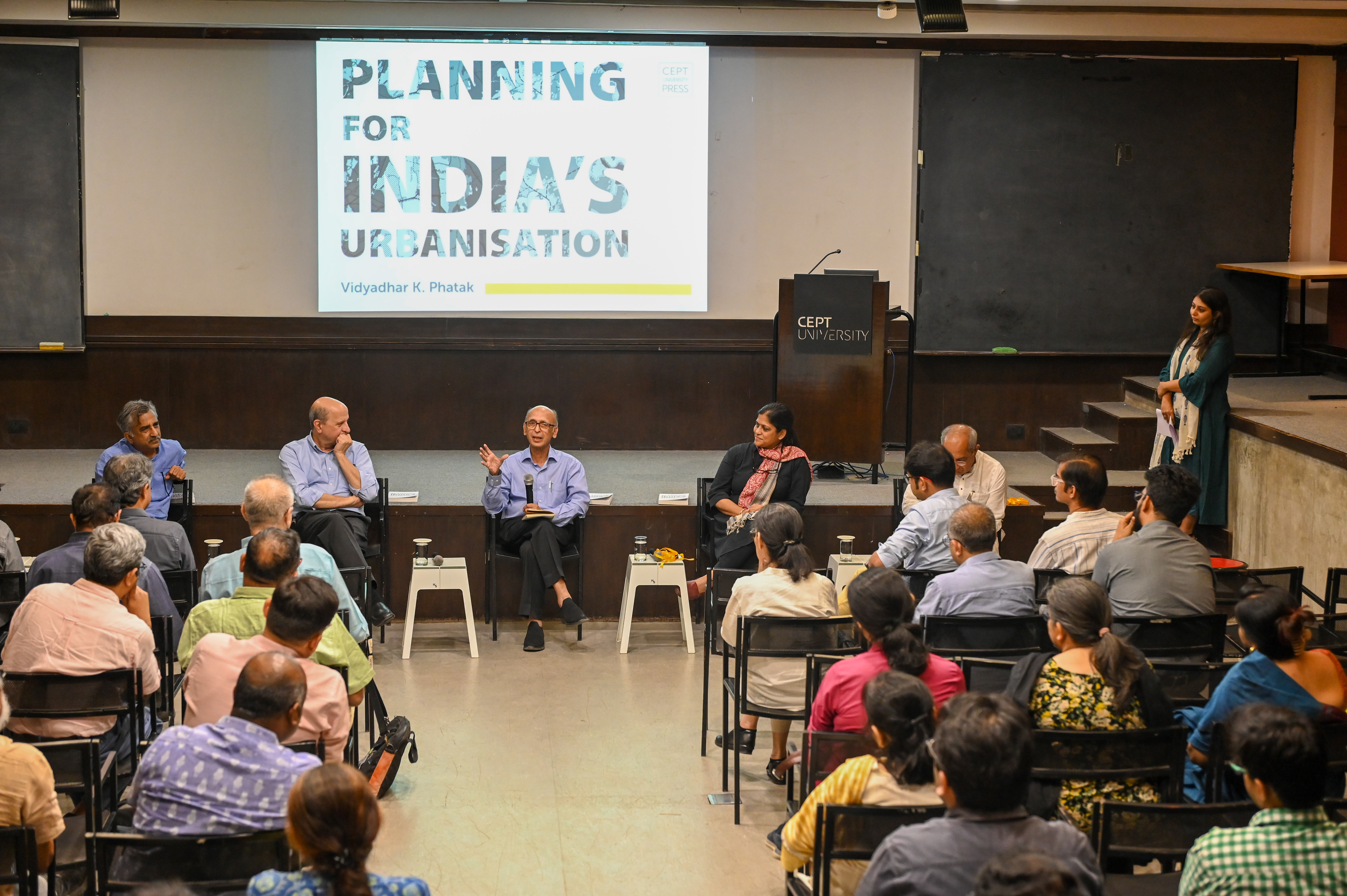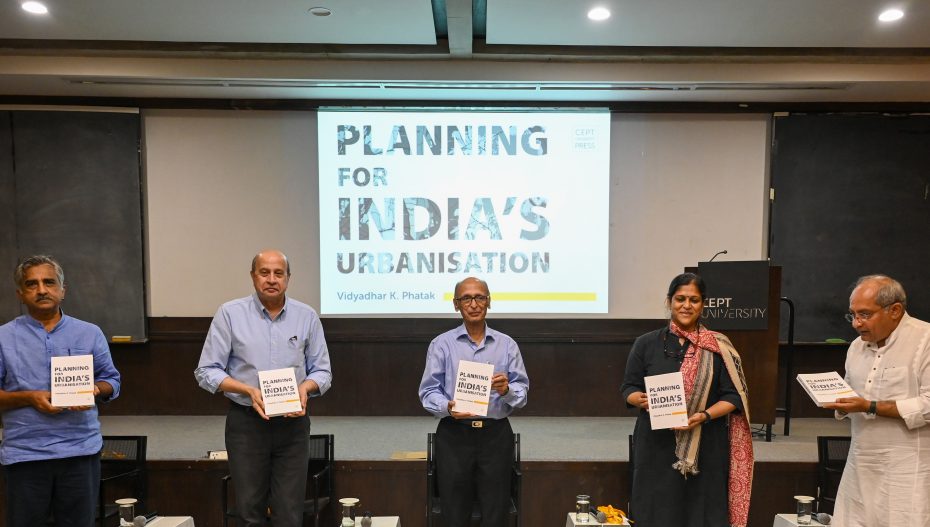CEPT University Press today unveiled a new book titled ‘Planning for India’s Urbanisation’ authored by Vidyadhar K. Phatak, one of the country’s leading practitioners and thinkers in Urban Planning. The launch event saw participation from practising planners, students, faculty members, alumni and other members of the CEPT community.
The book is a compilation of essays penned over two decades, encapsulating Phatak’s extensive experience of over fifty years in public service, consulting and academia. His unique perspective, shaped by his operational role in the planning of the Mumbai Metropolitan area and subsequent roles as a researcher and academic, lends the essays a depth of insight.

The book explores four main themes: urbanization and its challenges, the crucial role of land in planning and financing development, urban housing, and planning a metropolis. The essays delve into urban issues in the post-liberalisation era, planning standards, land and housing, and the interplay between regulatory planning practices and their impact on markets, particularly housing supply and demand.
About CEPT University
Established by the CEPT University Act of 2005 enacted by the Government of Gujarat, CEPT University focuses on understanding, designing, planning, constructing and managing human habitats. Its teaching programs aim to build thoughtful professionals and its research programs deepen understanding of human settlements. CEPT University also undertakes advisory projects to further the goal of making habitats more livable.
In December 2023, CEPT University was recognized by the Government of India as a Centre of Excellence in Urban Planning and Design, accompanied by an endowment of Rs. 250 Crore for research and training on India-specific knowledge in Urban Planning and Design over the next 25 years.
About CEPT Research and Development Foundation (CRDF)
CRDF is the research and advisory arm of CEPT University. It actively engages in research projects, advisory assignments, and capacity-building initiatives aimed at solving critical problems in the built environment and improving people’s quality of life in towns and cities.
Also Read: How Scandals Refuse to Die at Gujarat’s Parul University












